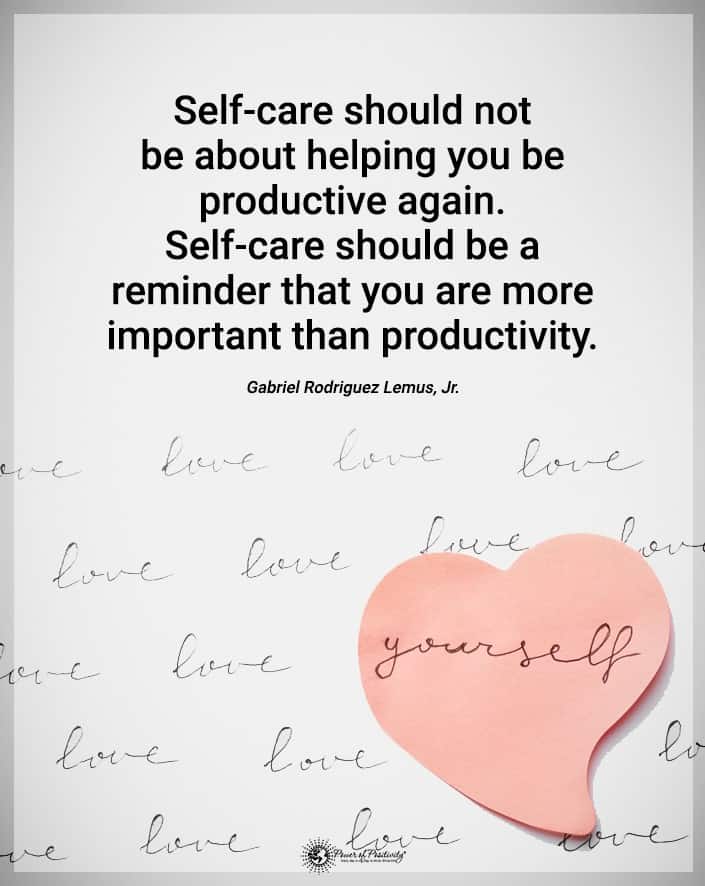By now, you’ll be primarily used to life throwing challenges at you, but there can still be times when it’s all too much. Being exhausted and put upon makes it feel like things are going out of control. What you’ve got to do is steel up, find your positivity, and adapt to the turbulence of life. With enough soul-searching, you’ll learn to be stubbornly resourceful and indomitable when life gets tough.
Here are eight positive ways to cope when you face difficult times.
1. Relive Your Good Memories
Through positive thinking, you can immerse yourself in the past, drawing strength from your best memories. Appreciating them can make it feel all the more possible to have good times in the present. Be encouraged, knowing that your well-being is worth fighting for.
· Comforts Of The Past
Research shows that getting nostalgic is good for you. This kind of reminiscence increases one’s feeling of social support, counteracting loneliness. The most resilient people are more likely to use nostalgia to overcome negativity, so don’t underestimate the power of looking back on your life.
· Take Some Time
When you wake up, pause to reflect on how happy you are that good things have happened to you. Think about who was involved in those memories and how they’ve impacted your life. It’ll kindle warmth in you, a much-needed reassurance when the going gets tough.
· Express Gratitude When Life Gets Tough
Let your memories remind you that you’re lucky and look forward to making more. Express gratitude for the little things you remember, like a pleasant smile or a thoughtful remark. Practicing this will help you see the bright side of things and make you a more appreciative person in general.
2. Seek Support From Others
When life gets tough, be open with friends and family about what you’re going through. Disclosing the details can be intimidating, but you can’t keep them bottled up. Unburden yourself, so there’s a safety net ready for you.
· Exchange Thoughts
It helps to express the thoughts that make things hard. It’s a cathartic release that can deflate what seems like a big deal. Listen to advice and have constructive discussions about your problems. You may not always come to definitive conclusions, but knowing you can talk about it is good for you.
· They’re Your Safeguard
Your support group safeguards you with its positive influence. If something bothers you during the day, be consoled that you can discuss it with those close to you later. It’s always a mood boost knowing they’ve got your back. They can keep an eye on you and send encouraging messages now and then.
· Make Progress
The point of repeated group meetings is to make progress, not to unload your pain aimlessly. This response requires brainstorming sessions, taking criticism, and trying new things. Don’t hesitate to write down important points that you want to explore. Naturally, being flexible and considerate of people’s concerns is critical.
3. Learn And Grow Through Contemplation
Tough times are an opportunity to explore yourself. Ask yourself big questions to understand what you’re all about. Having a solid sense of identity will keep you resistant when life throws you curveballs.
· Sense Of Self
Taking on tough times can help you realize what you like about yourself and what needs to change. You might finally kick old habits and reorganize your interests, making you more robust. By interrogating your past and present, you can understand who you should be and where you’re going next.
· Assess Your Actions
When you’re in a jam, you have to ask yourself how you got there. How might your choices have abetted the situation? How can you do better? Don’t let yourself off the hook, even if events mainly were outside your control. Seize the opportunity to address your blind spots and grow.
· Life Lessons
You can’t prepare for everything, so there will be times when life is pretty tough. These are learning experiences that make you a complete human being. It’s not always obvious what there is to know, necessitating diligent contemplation. You can cope more easily by mulling what you gain from surmounting obstacles.
4. Manage Your Mind
To some extent, you are what you think. Take care of what’s going on in your head to take care of yourself in general. When worries start to creep in, thwart them with positive thinking.
· Set Aside Time
To stay assured and on point, get in some “me time” here and there. Through reminders on your phone and other means, spend some time during the day telling yourself that you’re capable and reminding yourself of your skills. This will fortify you against doubts and stressors that nag at you persistently.
· Soothe Yourself
Whether you’re waking up, going to sleep, or just feeling down, calm your mind with various reassuring techniques. Simply closing your eyes and breathing deeply can halt a harmful train of thought. Try relaxing by visualizing an image, like a beautiful sunset or lazy ocean waves, immersing yourself in a safe place.
· Be Good-Humored
Get in the habit of having good humor. Even if you’re not particularly happy, making light of things will alter your thinking and lead to a more positive personality. Research surprisingly shows that the use of self-deprecating humor is associated with happiness and sociability. Maintaining a humorous perspective, although the difficulty is made by those people who manage anger effectively.
5. Accomplish Things To Stay Busy
The feeling of progress is an antidote to difficulty. There’s little time to fret when you have your hands full, hustling to accomplish things. Good work ethic is positive defiance of adversity.
· Be Proactive
Research shows that sedentary life is a risk factor for depression, including too much television and napping. So if there’s a task you’ve been putting off, get it done. If there’s something new you want to try, don’t hold back. Then rejoice in catharsis when you’ve got achievements under your belt.
· Hobbies And Passions
Focusing on your hobbies is the perfect coping mechanism, keeping you productive while you thoroughly enjoy yourself. Go for a run, lift weights, jump rope, play piano, taste wine, whatever you need to be yourself. Push yourself to get better so that your pride outweighs the negativity.
· The Road Ahead
Don’t dwell on how tough things are. Focus on your hopes for the future. Remember that you can’t afford to lose precious time, so set yourself up for success. This could mean making a purchase or phone call, clearing up space, or having an important meeting with someone. You could use the relief of being as ready as possible.
6. Indulge In What You Like
Indulge yourself in feel-good stuff to recharge after life’s troubles. As long as it’s in the right amount, there’s nothing wrong with cathartic activities and guilty pleasures to perk you up. Your mood will be on the uptick when you have things to look forward to.
· Escapist Amusement
Separate yourself from unpleasantness by enjoying escapism. Rewatch a favorite movie, play an involving video game, or listen to invigorating music. Get excited about seeking out new creative works since you never know what will catch your interest and make good memories.
· Strong Bonds
Have a get-together with your friends to strengthen your bonds while letting loose. Think of this as an act of determination, with you knowing that life is tough while refusing to back down. Your friends’ affection and the mischief you’ll get up to are likely to upgrade your confidence.
· Comfort Foods
As long as you don’t overdo it, delectable treats are comforts that’ll get you through thick and thin. Unwind with a slice of pie before bed, or calm your nerves by downing a cup of hot chocolate with marshmallows. Naturally, it helps to balance this with exercise.
7. Accept Everything And Move Forward When Life Gets Tough
Author and journalist Hara Estroff Marano says that your mood influences many brain’s important operations, like perception, motivation, decision-making, social interaction, and memory. When you can’t accept bad things that have happened to you, it throws your mood out of whack, which in turn wreaks havoc on you. If you’re going to move forward, you’ve got to come to grips with things.
· Ditch Resentment
Anger at what’s happening to you is to be expected, but let it go. Prolonged resentment will impact your physical and mental health, making you more likely to experience desperate outbursts. Put your foot down and tell yourself that now is the time for solutions.
· Inspire Yourself
There are surely examples of things you’ve overcome in the past. Part of accepting present difficulties is knowing how capable you are. Take inspiration from what you’ve accomplished before to push through.
· Emphasize Control
Direct your thoughts around what you can control and how much influence you have. Self-defeating thoughts don’t yield anything productive. Critically thinking about the options at hand keeps your priorities straight so you can process what’s going on.
8. Shifts In Perspective
Going beyond positive thinking, you can shift your perspective in life for higher efficiency. Escape cognitive traps that keep you unproductive while establishing habits that do you justice. You can cope easily when you’re a well-oiled machine.
· Reject Bad Patterns
Your brain can trap you, causing rumination about how things aren’t going your way. This can make you feel consistently dejected. Instead, focus on what you can actually control and how much you appreciate that. Recognize your bad moods and tell yourself you’ll worry later, by which point you might forget why you were worried at all.
· Handle Your Problems
How you think about problems determines how much they upset you. Ask yourself if you’re exaggerating the bad while forgetting the good. Recite the good aspects of your life, and contrast the way you were before with the strength you’ve gained now. With a bit of perspective, you might realize your problems aren’t that big.
· Positive Reframing
According to Dr. Joachim Stoeber, accepting negative outcomes and looking for something good in what happened has a positive effect on satisfaction. It’s best to laugh at bad things so that you can move on and prevent rumination. This positive reframing tactic is good at negating the harshness of hard times.
Final Thoughts On Some Positive Ways To Cope When Life Gets Tough
Obviously, you can never prepare for everything. What you can do is make it your tireless mission to stay resilient. People too often underestimate themselves when their inner strength is still hidden. Facing down challenges when life gets tough may painfully force you to dig deep. But don’t despair. In the end, that sort of experience is how you’ll evolve and learn who you really are.

















 Community
Community

